I wrote a version of this post several years ago as an internal memo aimed at articulating the “secret sauce” that differentiated our agency from competitors. I believe the core thesis remains true and relevant today, and thus thought it worthwhile to publish an updated version. A couple notes:
- The definition and use of Process Knowledge is inspired by Dan Wang’s essay “How Technology Grows (a restatement of definite optimism)”
- While I’ve written this post in the context of media agencies, I believe the concepts to be applicable to most organization types.
Overview
I believe agency service offerings can be thought of in three parts:
- Processes embedded into technology and platforms (e.g. data management systems, buying platforms, internal agency tools)
- Explicit instructions (e.g. best practice docs, internal wikis)
- Process knowledge, or tacit knowledge gained from deep experience. The “meta” of how things work learned from time in the trenches.
Of the three, process knowledge is the most difficult to articulate, hardest to develop and toughest to maintain. However, I also believe it plays the biggest role in what makes for a strong agency. As Wang states:
Process knowledge is the kind of knowledge that’s hard to write down as an instruction. You can give someone a well-equipped kitchen and an extraordinarily detailed recipe, but unless he already has some cooking experience, we shouldn’t expect him to prepare a great dish.
A couple agency examples:
- Asking a novice trader to run a programmatic campaign with nothing but a client brief and DSP playbook is likely to result in an incident. In this context, process knowledge can include an understanding of platform “hacks”, channel-specific scalability, deal type nuances and more.
- One can provide a data strategist with access to client data and the heuristics/ queries for audience segmentation, but unless they’re experienced with the technical and planning nuances required for downstream deployment (process knowledge), utility will likely be limited.
Simply knowing the steps of a process is the baseline. The real magic occurs when one understands the nuances and context that goes into and surrounds those steps. Process knowledge is gained through direct experience and/or from those who already possess it.
Process knowledge as differentiation
- For service-driven organizations like agencies and consultancies, aptitude ultimately progresses because of people (ie. plus-level talent density) and an increase in the process knowledge they possess. From that perspective, one can view great work, campaign successes and IP development as proof of accumulated process knowledge and thus the development of strong talent.
- Great product is the natural output of developing process knowledge. The inverse however, doesn’t always hold. Merely having a large store of documentation and case studies is no guarantee that more can be created.
- Based on the above, one can argue that expertise progresses because of people or more specifically, the amount of process knowledge they’ve managed to accumulate.
- In the same way, the ability to produce great work isn’t possible without deep pools of process knowledge. Proprietary technology can offer a competitive advantage, but in terms of platform access, SLAs, training, etc, most agencies have that. It’s the skill with which tools are wielded that set companies apart. Internal training, documentation and how-to-guides are objectively important, but it’s difficult to extract maximum value without an understanding of what went into codifying them.
Process knowledge unlocks innovation and creativity
Earlier, I said that simply knowing the steps of a process should be considered baseline, and understanding the “meta” surrounding those steps is where process knowledge sits. I also believe it’s only after nailing this baseline can one effectively and safely create new ideas. Whether it be improving best practices or coming up with the next breakthrough, it’d be very difficult without process knowledge. To put it another way, one has to know their way around the box before they can think outside of it.
An example is when we seek inspiration from outside the industry, which I believe to be the source of many great ideas (an application of lateral thinking). According to David Epstein in his book Range: Why Generalists Triumph in a Specialized World:
Lateral thinking is a term coined in the 1960s for the reimagining of information in new contexts, including the drawing together of seemingly disparate concepts or domains that can give old ideas new uses
However, in order for these ideas to take root and flow into existing work, one must possess the process knowledge necessary to form the connective tissue required for integration and action.
Another metaphor comes from acting. As an actor, memorizing the script is considered table stakes. It’s only after you’ve internalized the script and gotten “off-book” does real acting begin (e.g. being present in the moment, reacting to your partner, controlled improvisation). Same thing here, except best practices are the script, process knowledge is getting off-book, and subsequent innovation is the real acting.
Process knowledge accumulates fastest in groups
Process knowledge can develop in silos, but its growth is greatly amplified when allowed to incubate in cohorts (e.g. dedicated disciplines). This is doubly true when said cohorts are within proximity (e.g. same office, sitting together). Reasons include but are not limited to:
- Process knowledge pooling (compounding interest metaphor)
- Best practice development and interrogation
- Inter-campaign alignment and continuity (e.g. discipline level workstreams and testing)
- Organic think tanks
- “Water-cooler” innovation (ie. ideas born from casual conversations vs. scheduled calls)
- Solidarity, pride, identity and common mission (anchored by personal relationships)
- Inertia – If people are accustomed to pushing boundaries, testing and learning (and failing), they are less hesitant to do it moving forward
*In this context, small companies and startups can qualify as cohorts unto themselves.
What happens when teams and processes are broken apart? In most cases, fragmentation makes it more difficult to maintain process knowledge. As such, my personal opinion is that largely remote organizations are at an inherent disadvantage vs companies that are majority on-premise or have hybrid arrangements. The other caveat I’d make is that process knowledge accumulation slows and even reverses for companies operating beyond a certain scale due to various counteracting forces (e.g. talent-dilution/turnover, cost-cutting, increased bureaucracy, etc.)
Process knowledge and the realities of growth
For agencies with a high rate of growth, it’s inevitable the number of individuals with deep process knowledge will become diluted as the company takes on new clients, expands into more markets and opens new offices. As such, it’s not enough to just maintain existing pools of process knowledge, but they must also create conditions to:
- Facilitate the spread, protection and dissemination of existing process knowledge.
- Catalyze the development of new process knowledge.
I believe that creating said conditions is feasible/practical up to a certain company size, but becomes increasingly difficult with more growth due to the emergence of the counteracting forces mentioned in the previous section. Agencies generally have three primary levers for generating revenue: Scale, Price, Quality. Given everything written thus far, I believe that process knowledge is causative in positively modulating the Quality lever. Unfortunately, process knowledge dissolution is also a natural consequence of business dynamics within large agencies (and companies in general). There’s no silver bullet solution, and I won’t pretend to offer one here. That said, I do believe that it’s worthwhile for agency leaders to be intentional and creative in pushing against this inertia. Easier said than done, but it’s a good fight worth fighting.
Illustration by Pedro R. M. Andreo (@ElectroCereal)



